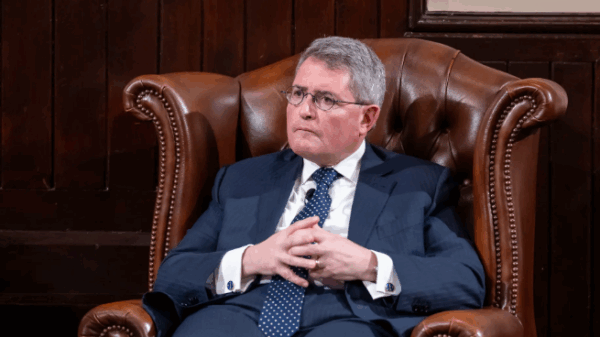As the fourth anniversary of the January 6 Capitol attack approaches, attention is shifting to the prospect of President-elect Donald Trump issuing pardons for many of the over 1,500 individuals charged in connection with the riot. Trump, who returns to the presidency on January 20, has previously promised to issue pardons to those involved in the attack, which he described as “suffering long and hard.”
In a recent interview on NBC’s “Meet the Press,” Trump expressed that he would likely move quickly to grant pardons, but also mentioned the possibility of exceptions for those who were “radical” or “crazy.” His campaign pledge has drawn renewed attention as lawmakers gather to certify the presidential election for the first time since the January 6 riot, which temporarily halted the certification of Joe Biden’s victory.
Rep. Marjorie Taylor Greene, R-Ga., a vocal supporter of pardons, has been in communication with Trump, lobbying him to pardon everyone involved in the Capitol siege. While Greene’s stance is extreme, many Republicans support examining pardons on a case-by-case basis. “Many of these people have been in prison since 2021,” Greene argued. “Even those who fought Capitol Police or caused damage to the Capitol, I think they’ve served their time and should be pardoned.”
Since the attack, more than 1,250 individuals have pleaded guilty or been convicted for crimes related to January 6, with over 650 receiving prison sentences ranging from a few days to 22 years. Many of the rioters were motivated by Trump’s false claims of election fraud, with some even calling for violence against prominent politicians, including then-Vice President Mike Pence and House Speaker Nancy Pelosi.
The potential for pardons has sparked strong reactions, particularly from law enforcement officials who defended the Capitol that day. About 140 officers were injured in what has been described as the largest single-day mass assault on law enforcement in U.S. history. Capitol Police Sgt. Aquilino Gonell, who retired due to injuries sustained during the riot, condemned any effort to pardon rioters who attacked officers and disrupted the certification process. “You cannot be pro-police officer and rule of law if you are pardoning people who betrayed that trust,” Gonell stated.
While some Republicans, including Rep. Jim Jordan, support pardons for non-violent offenders, others, such as Rep. Gus Bilirakis, express caution, particularly when it comes to those who attacked law enforcement. “If they attacked the U.S. Capitol Police, it’s a big problem,” Bilirakis said.
House Democrats, who spearheaded Trump’s impeachment over his role in the insurrection, have warned that pardons for rioters could undermine the rule of law and send a dangerous message about accountability. Rep. Bennie Thompson, D-Miss., argued that pardoning those who attacked law enforcement would be offensive to anyone who values peace and security. Rep. Jamie Raskin, D-Md., suggested that if pardons are issued, they should be conditional upon the individuals showing genuine contrition and a commitment to not posing a future threat to public safety.
As Trump prepares for his return to office, the possibility of pardons looms large over the Capitol, where lawmakers and law enforcement officers alike are grappling with the aftermath of the January 6 attack.








































